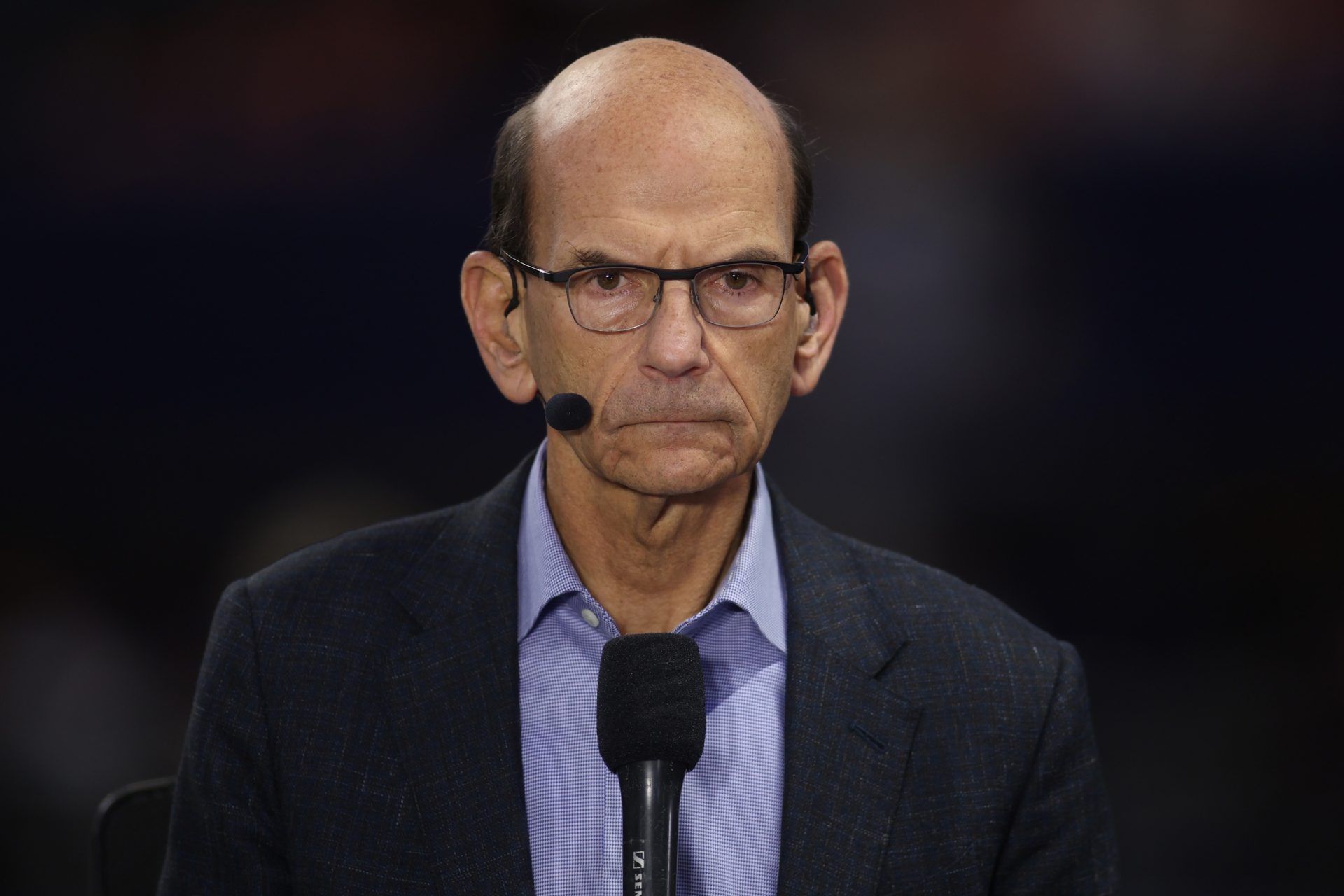The House vs. NCAA settlement was approved on Friday, June 6, ushering in a new era for college athletics. With this new court decision, colleges now have a pathway to directly pay players, causing many to believe that athletes might soon be considered “school employees.”
ESPN’s college football analyst Paul Finebaum believes sports on that level will be worse off moving forward. In a recent interview, he revealed that he thinks this is the end of “Cinderella stories” in college athletics.

Analyst Paul Finebaum Sounds Off On State of College Athletics
The most noticeable part of the recent House v. NCAA settlement states that schools can now directly pay players, tearing down the curtain of amateurism in college sports. There will be an annual cap, which is expected to start at $20.5 million per school in 2025-26 and increase every year during the 10-year-long deal.
“I couldn’t help but think back about 10 years ago when Mark Emmert, then the president of the NCAA, essentially said, ‘College athletes will be paid over my dead body,'” Finebaum said on ESPN’s Saturday edition of SportsCenter.
“He’s still alive, but the NCAA is dead. It may still be in existence. We’re still having tournaments such as the Women’s [Softball] World Series and men’s baseball, but the NCAA as we know it is gone.”
He continued, “They literally have no jurisdiction whatsoever other than to be tournament directors.”
Finebaum added that the House vs. NCAA settlement was supposed to level the playing field, but he believes it will do the opposite.
“The big will get bigger and the small schools will simply slip away, other than maybe in basketball-only conferences that can use all that money for basketball, as opposed to — like at Alabama and Georgia and Ohio State — where they have to split up $20.5 million,” Finebaum said.
Finebaum predicted what major college sports will look like in 10 to 15 years. For fans of smaller schools, the outlook is bleak.
“It will look a little bit like the NCAA basketball tournament this year, where the mid-majors — where we had all those great upsets — the Butlers of the past and so many incredible stories, the Valpos, they’re gonna be gone,” Finebaum said. “It’s gonna be the big schools on top. The rest of college athletics is going to suffer.”
Finebaum believes women’s sports will take the biggest hit as large schools pour their funds into their football programs.
Former Major League Baseball executive vice president Brian Seeley takes over as the CEO of the newly organized College Sports Commission (CSC). The CSC becomes the rule enforcement body, overseeing revenue sharing, NIL deals, and roster limits.
“Go to your local CVS and buy the biggest bottle of Advil you can find, because you are going to have more headaches than you’ve ever had before,” Finebaum said. “I hate to be a pessimist on a beautiful Saturday morning… but this sport is not fixable.
“As soon as this is settled,” Finebaum continued. “Which, of course, it was last night. Executives are going to Washington to keep pushing Congress to solve their own problems.”
He also stated, “College athletics did this to themselves.”
In Finebaum’s view, college athletics has crossed a point of no return, ushering in an era where tradition gives way to unchecked financial power. As the CSC navigates this new landscape, uncertainty looms large.
College Sports Network has you covered with the latest news, analysis, insights, and trending stories in college football, men’s college basketball, women’s college basketball, and college baseball!

